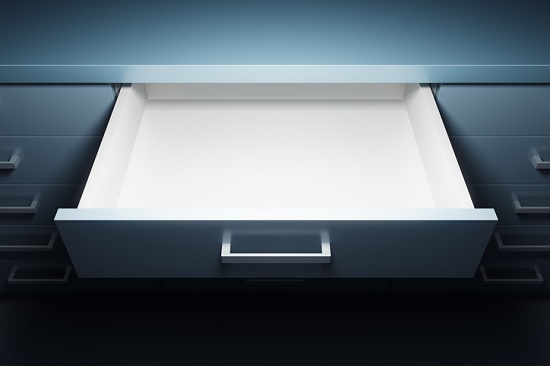Why People Give Up on Hearing Aids (And Why You Shouldn’t)

As hearing professionals, there’s one particular type of hearing aid that we all are worried about. It’s bad for the patient, and it can deter others from even making an effort to give hearing aids an opportunity.
They’re regarded as “in-the-drawer” hearing aids. Compared with behind-the-ear or in-the-canal hearing aids, ITD hearing aids never see the light of day, demoralizing the patient and anyone the patient informs about their unpleasant experience.
For the countless numbers of people that have owned hearing aids, a good number will call it quits on the possibility of healthier hearing for one reason or another. However, with today’s advanced technology, we know that this should not be the case.
But hearing aids can be complicated. There are several things that can go wrong, creating a negative experience and causing people to stop trying. But there are ways to protect against this, actions you can take to ensure that, with a little patience, you get the optimal results.
If you’ve had a bad experience in the past, know someone who has, or are thinking about giving hearing aids a try, you’ll want to continue reading. By becoming familiar with the reasons some people give up on hearing aids, you can avert the same mistakes.
Below are the primary reasons people give up on hearing aids.
1. Purchasing the wrong hearing aid or device
Let’s begin with the fact that everyone’s hearing is distinct. Your hearing loss, just like your fingerprint, is also unique to you. Additionally, most people with hearing loss have more difficulty hearing higher-pitched sounds, like speech, compared to other sounds.
As a result, if you select a device that amplifies all sound evenly, like most personal sound amplifiers, sound quality will be affected, and you’ll still most likely be drowning out speech. You’ll need a hearing aid that is programmed to amplify the specific sounds and frequencies you have difficulty with, while suppressing background noise simultaneously.
Only programmable digital hearing aids have this capacity.
2. Incorrect hearing aid programming or fitting
Seeing as hearing loss is unique, the hearing aid must be custom-programmed for you specifically. If the configurations are inaccurate, or your hearing has changed throughout the years, your hearing professional may have to adjust the settings.
Far too frequently, people give up too quickly, when all they require is some adjustment to the amplification settings. Additionally, if your hearing changes, you may need the settings updated. Think about it like prescription glasses; when your vision changes, you update the prescription.
Also, nearly all hearing aids are custom-molded to the curves of the ear. If you find the fit uncomfortable, it may either just take some time to get used to or you may need a new mold. Either way, this shouldn’t prevent you from attaining better hearing.
3. Not giving hearing aids a chance to work
There are two problems here: 1) managing expectations, and 2) giving up too quickly.
If you think that hearing aids will instantly return your hearing to normal, you’re setting yourself up for discouragement. Hearing aids will enhance your hearing drastically, but it takes some time to get used to.
At the outset, your hearing aids may be uncomfortable and loud. This is normal; you’ll be hearing sounds you haven’t heard in years, and the amplification will sound “off.” Your brain will adjust, but not over night. Plan on giving your hearing aids about 6-8 weeks before your brain properly adapts to the sound.
Your persistence will be worth it—for patients who give themselves time to adjust, satisfaction rates skyrocket to over 70 percent.
4. Difficulty hearing in noisy surroundings
Individuals with brand new hearing aids can become easily overwhelmed in chaotic, noisy environments with a lot of sound. This can happen for a few reasons.
First, if you right away begin using your new hearing aid in noisy settings—before giving yourself a chance to adapt to them at home—the sound can be overpowering. Try to adjust in tranquil environments before testing at a loud restaurant, for example.
Second, you’ll have to adjust to the loud environments too, just like you did at home. It’s common to have one bad experience and give up, but keep in mind, your brain will adapt over time.
And last, you may just need to update your hearing aids. The latest models are becoming progressively better at eliminating background noise and enhancing speech. You’ll want to reap the benefits of the new technology as the speed of change is rapid.
It’s true that hearing aids are not for everyone, but the next time you hear a story about how hearing aids don’t work, you should start questioning if any of the above is applicable.
The fact that hearing aids didn’t work for someone else doesn’t mean they won’t work for you, particularly if you work together with a established hearing care provider. And if you’ve had a negative experience in the past yourself, perhaps a fresh start, better technology, and professional care will make all the difference.
